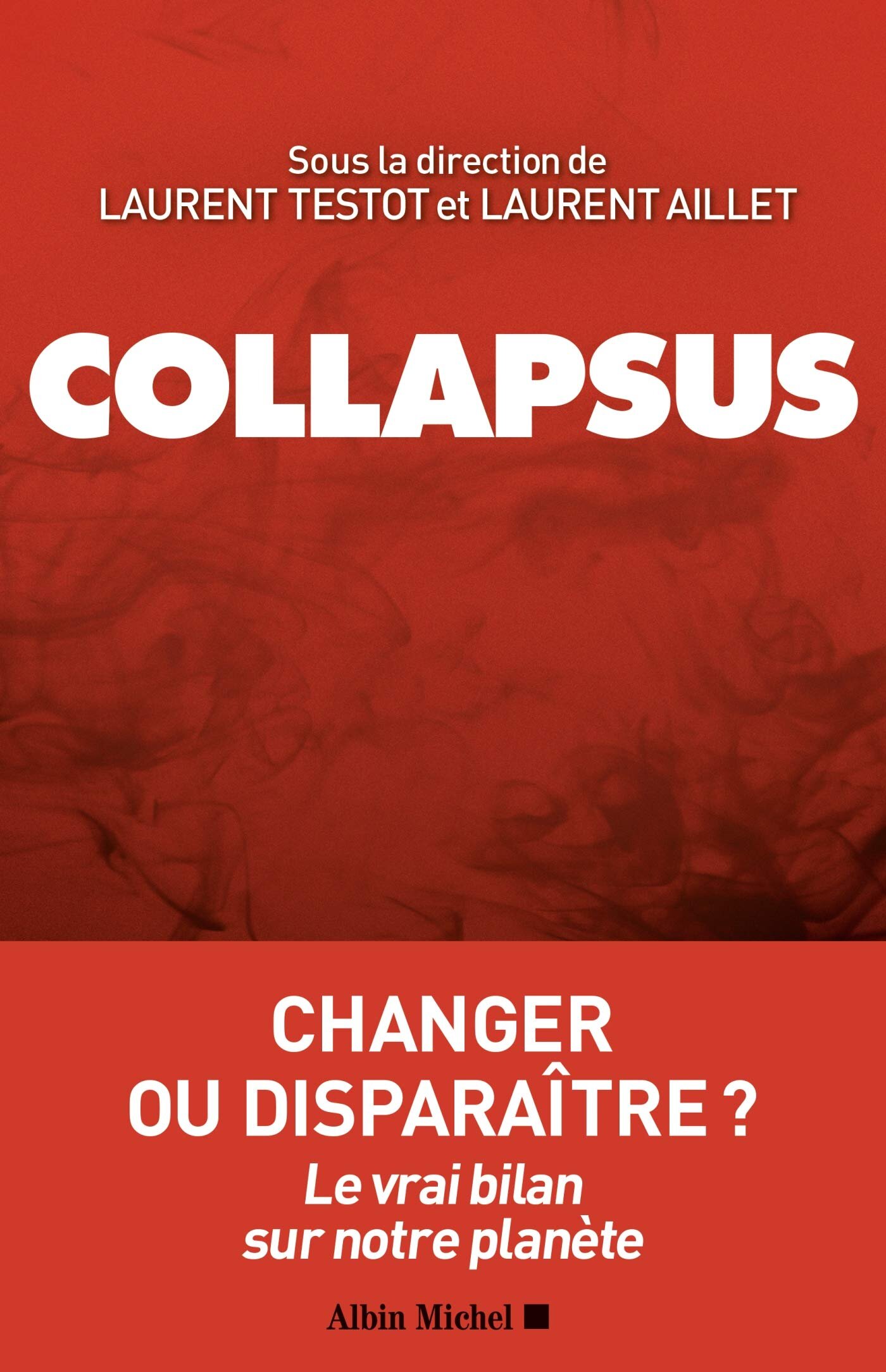Collapsus: Change or Disappear? Reassessing the Current State
of Our Planet
Laurent Testot and Laurent Aillet, Eds.
(Albin Michel, 352 pages, 2020)
Extreme weather, accelerating species extinction, dwindling freshwater reserves, resource wars, mass migration: for an emerging group of scientists and activists disenchanted by mainstream environmentalism, the convergence of these various crises foretells the imminent collapse of societies as we know them. Laurent Testot, a journalist who specializes in global history, and Laurent Aillet, a risk management expert, have gathered an array of concerned individuals to address the challenging questions brought forth by this emerging movement called “collapsology.” Philosophers, agronomists, historians, politicians, geostrategists, lawyers, biologists, economists, sociologists, even science fiction writers, draw on their individual areas of expertise and experience to reflect on the current state of the planet. Far from being mere prophets of doom, they ask us to take hold of the present, unblinkingly reflect on our choices, and envision plausible trajectories for our collective future.
This kaleidoscopic investigation is broken down into three parts, each comprising original essays, short theses, and interviews. The first section helps us take stock of the state of affairs, what we already know and what we fear: global warming and shrinking biodiversity, but also the cognitive bias which interferes with the development of an ecological consciousness, the philosophical underpinnings of our so-called “love of nature,” and the specter of energy shortage and breakdowns, which since the advent of industrialization has been a recurrent source of fear and distress. The second section explores the ongoing debates surrounding the ecological crisis, democracy, energy transition, and the rise of military conflicts. We meet Pablo Servigne, who with Raphaël Stevens coined the word “collapsology”; sociologist Alain Caillé, the founder of the French Anti-Utilitarian Movement in the Social Sciences, and many more. The final section offers different perspectives on what can be done. While the contributors share the fundamental premise of economist and philosopher Kenneth E. Boulding that “every system possesses its limits,” none—including the self-identified collapsologists among them—portray the “collapse” as a fatality, but rather as a non-negligible probability, one that can only be avoided by changes more radical than “sustainable development.”
Collapsus informs us, incites us, and delineates possible futures. It echoes the urgent call for interdisciplinary strategies championed by modern collapsologists. It aims to offer a collective reflection at once informative, provocative, reflective, and anticipatory. Laurent Testot and Laurent Aillet note that if there is one thing the study of past predictions tells us, it is that history always shows itself to be intractable. In these pages coexist seemingly irreconcilable schools of thought, each with something to teach us about the complexity of the unprecedented period in which we now live. Collapsus reminds us that we must come together—now more than ever—in a combined effort to save our future from collapse.
Laurent Testot is a journalist specializing in global history. A longtime contributor to the magazine Sciences Humaines, his book Cataclysms: An Environmental History of Humanity (University of Chicago Press, 2018) received the 2018 Léon de Rosen Prize from the French Academy.
Laurent Aillet, a former biologist, is a risk management specialist who has worked for various international companies, notably Bosch, Faurecia, Alstom, and General Electric. He is co-founder of Adrastia, an association that seeks to inform and federate around the possibility of a civilizational collapse.

